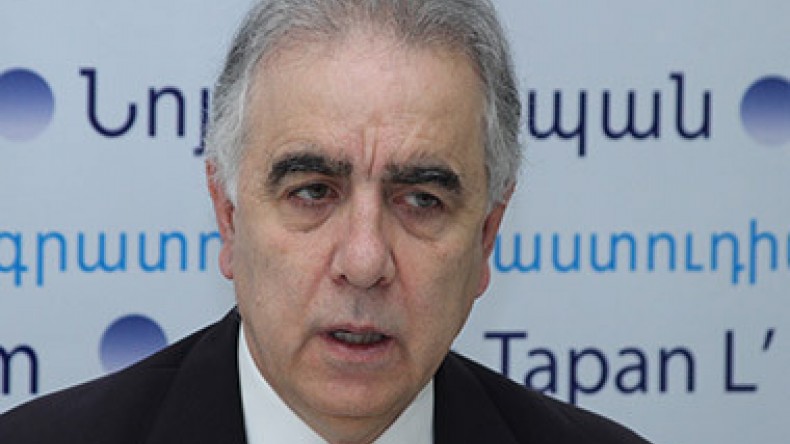
Shifting inter-relationships between Armenia and Diaspora
By Harut Sassounian
Publisher, The California Courier
The Diaspora Ministry of the Republic of Armenia invited a small group of scholars and analysts to Yerevan last December to discuss the Diaspora’s changing role in relation to the homeland. The participants in the “Changing Diaspora in an Ever-changing World” roundtable had come from Argentina, Armenia, Germany, Lebanon, Russia, Ukraine, and the United States.
The discussion centered on the formation of the Diaspora, current challenges, Armenia-Diaspora collaboration, improved links for closer cooperation between Armenia and Diaspora, and the quest for new working mechanisms and perspectives.
Here are excerpts from my presentation at the meeting:
The Diaspora encountered a completely new set of circumstances after Armenia’s independence. The sudden realization of the long-cherished dream of free Armenia caught many Diasporans by surprise. New words appeared in their vocabulary: Artsakh (Karabagh), earthquake, blockade, protocol, opposition, coalition government, regime change.
Most Diasporans had a hard time distinguishing between the actions of an individual, group or organization and the rights and obligations of a state. At the same time, Armenia’s new leaders could not fully comprehend the patriotic sentiments, wishes and desires of Diasporan Armenians, causing a disconcerting rift between the two sides.
Complicating matters, the Diaspora is not a monolithic group, but is composed of distinct subsets, having taken shape at different times in foreign lands under various cultural and linguistic influences.
When asked by journalists in Armenia about Diaspora’s views on a particular issue, I have difficulty answering such a question. How can anyone encapsulate the diverse views of seven million Diasporans? To reflect the opinion of the majority of the Diaspora, one would need to form a pan-Armenian body, either by expanding the Hayastan All-Armenian Fund’s functions beyond fundraising or creating a brand new structure that would represent Armenians worldwide, except those in Armenia and Artsakh, based on the principle of ‘one man, one vote.’ The elected representatives would have the right to speak in the name of all Diaspora Armenians and meet periodically with the leadership of Armenia and Artsakh to consult and coordinate their priorities on pan-Armenian issues.
Leaders of all three wings of the Armenian nation (Armenia, Artsakh and the Diaspora) can then discuss their respective positions, and agree on the role each would play. Such a division of labor is preferable over unending internal feuds and conflicts that sometimes take place, as was the case during the signing of the Armenia-Turkey Protocols.
It is incumbent upon Armenia’s leadership to be more sensitive on issues that are important for Diaspora Armenians and consult with them before taking final decisions.
Understandably, Armenia’s leaders are not obliged to take orders from anyone outside the country’s borders. While having the final say over all matters, they nevertheless have the moral duty and obligation to consider the views of key Diasporan organizations, in the absence of a Diaspora-wide elected body. In any case, Armenia’s authorities are responsible before the nation for their actions. They are praised when taking the right decisions and criticized when they do not.
It must be stated that an elective Diaspora-wide structure, no matter how difficult to establish, would be far more inclusive and representative than appointed leaders — despite their devoted efforts — who merely represent their respective members. It is imperative to include large segments of our people in all activities, so that we become more effective in our endeavors, particularly at a time when Azerbaijan and Turkey are organizing their Diasporas and spending tens of millions of dollars to undermine our just demands on the eve of the Genocide Centennial.
As we often state: “Azerbaijan has oil, Georgia has a sea, and Armenia has a Diaspora!” However, a disorganized and dwindling Diaspora would be of little value for our national cause. It can neither preserve itself nor be of any assistance to the homeland.
We must do everything possible to have a powerful homeland and a strong Diaspora. The survival of each is dependent on the vitality of the other. Despite the valiant efforts of the Diaspora Ministry, we must realize that the magnitude of what needs to be done is so enormous that it exceeds the capabilities of any one ministry. There is a clear need for the concerted efforts of Armenia’s entire leadership to make Diaspora Armenians feel welcome and at home!
Newsfeed
Videos






























